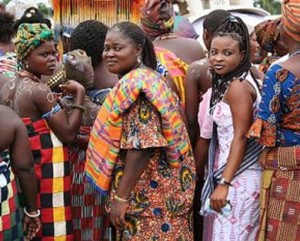Women deserve equal opportunities – Asare
 Mrs Comfort Asare, Acting Director, Department of Gender, Ministry of Gender, Children and Social Protection, has said it is important for women to be considered as equal partners in development.
Mrs Comfort Asare, Acting Director, Department of Gender, Ministry of Gender, Children and Social Protection, has said it is important for women to be considered as equal partners in development.
They must be given the opportunity to participate in all political, social and economic activities.
This, she said, would not only lead to significant socio-economic development, but would also help women to see themselves as important contributors to national development.
Mrs Asare said this on Thursday during a press briefing on the implementation of United Nations Security Council Resolution (UNSCR 1325) on Women, Peace and Security.
UNSCR 1325 on Women, Peace and Security was adopted on October 31, 2000 to ensure greater roles for women in the affairs of their various countries and the world at large.
The resolution was hinged on areas such as conflict prevention, protection for women and girls from gender based violence, participation of women in decision making and greater role in peace building.
Mrs Asare said Ghana as a member of the UN, and by adopting the UNSCR 1325, prepared the Ghana National Action Plan (GHANAP) 1325 in its effort to address the challenges of implementing the Women, Peace and Security commitments.
“It was designed to systematically consolidate all efforts to enhance [the position of women] and role in crisis management and peace building activities,” she said.
She said the Action Plan was strategically set to review conditions of service for peace keepers to ensure that specific requirements for women such as clothing, equipment, separate facilities such as toilets and baths are provided when needed.
She said although studies has shown that women and children bear the greatest burden associated with violent conflicts, peace infrastructure that are critical to sustainable socio-economic and political development tend to focus largely on the roles of men.
She called on the media to do well to disseminate issues raised in the Action Plan to all stakeholders.
Mrs Theodora Anti, Programmes Officer, Foundation of Security and Development in Africa (FOSDA), said since the passage of the Resolution 15 years ago, a review has shown that women in the security sector have been found to have significantly lower rates of complaints of misconduct and were less authoritarian in their interactions with lower ranking officers.
“Women presence in the security sector had also led to an increase in reporting of sexual and gender based crimes as well as an increase in the participation of national level governance”, she said.
Mrs Anti said after 15 years, it has also been observed that women in conflict affected and recovering countries also lacked opportunities necessary for survival; remain confronted by daily violence in their homes and communities.
She said although much has been made after the passage of Resolution 1325, more was needed to be done to achieve gender parity in local governance structures.
Mrs Queenette Tawo, Regional Coordinator, Communications and Capacity Building, West African Network for Peace building (WANEP), called on all political leaders to match their words with action on the case of gender equality.
She said ethnicity, traditions and religion beliefs were some of the reasons which deprived women of their right to freely partake in decision making activities involving security and peace.
She called on gender activists to educate traditional and religious leaders on the benefits that could be derived from allowing women to partake in the decision making process.
Source: GNA
